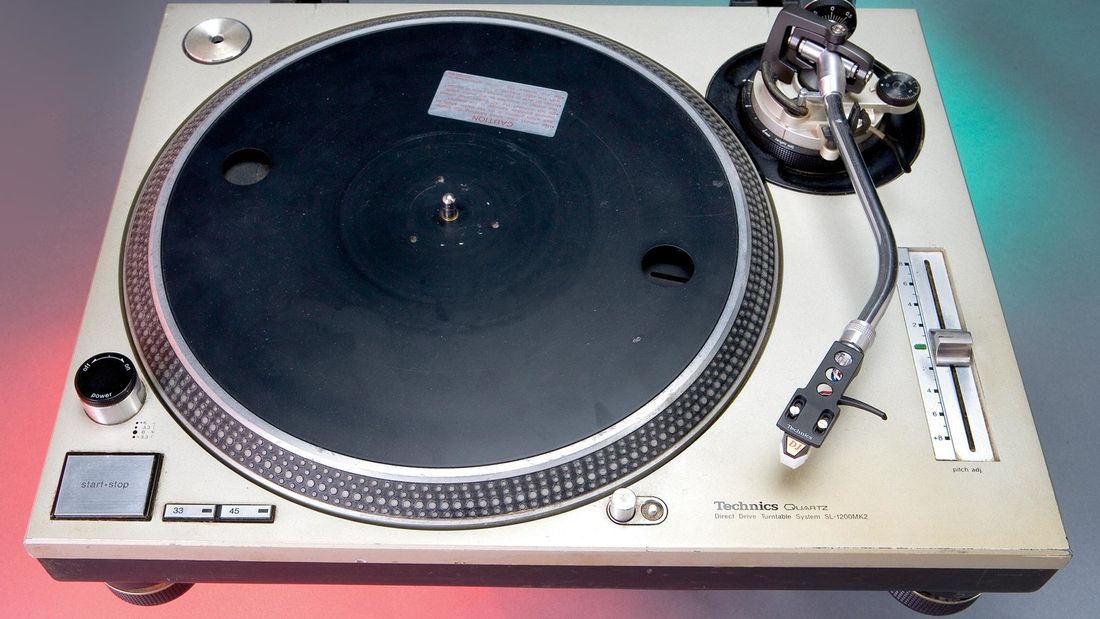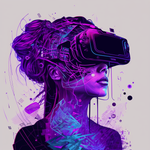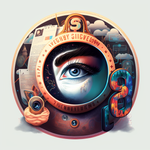Hip Hop Has Always Been on the Frontier and at the Intersection of Technological Innovation and Culture
Hip hop has always been at the forefront of technological innovation, from the early days of turntablism and sampling to the rise of digital music production and distribution. The mixtape era defined a generation of artists and with the advent of music streaming, hip hop has once again found itself leading the way in transforming the music industry and creating new opportunities for artists and fans alike.
In the early 2000s, hip hop was the dominant genre of music on file-sharing networks like Napster, Kazaa, and Limewire. The rise of digital music piracy had a profound impact on the music industry, as record labels struggled to adapt to the new reality of digital distribution. But for hip hop artists, the internet represented a new frontier of creativity and entrepreneurship. It also served as a method for artists to connect with their communities and expand their reach. Take that and add it to hip hop's general dissatisfaction with the status quo and the power of the elite (which included record labels) and you had an innovation powder keg ready to explode and transform the industry.
Artists like Jay-Z, 50 Cent, and Dr. Dre were among the first to recognize the potential of the internet to connect with fans and build their brands outside of the traditional music industry. Jay-Z famously launched his own record label, Roc-A-Fella Records, in 1995, and later founded the streaming service Tidal in 2014. 50 Cent built his career through mixtapes and collaborations with other artists, leveraging the internet to build a massive online following. Dr. Dre, meanwhile, revolutionized music production with the release of his seminal album, "The Chronic," which introduced a new sound and style that would define West Coast hip hop for years to come.
But it wasn't until the launch of iTunes in 2001 that digital music distribution truly began to take off. The rise of the iPod and other MP3 players made it easy for consumers to purchase and listen to music on the go, and for the first time, it became possible for independent artists to sell their music directly to fans without the need for a record label.
Hip hop artists were among the first to embrace the new digital landscape, with mixtapes and independent releases becoming a key part of the genre's culture. In 2005, the rapper Lil Wayne released his mixtape "Dedication 2" (still a top 5 hip hop listening experience for me) for free on his website, sparking a new era of online music distribution. Mixtape sites like DatPiff, LiveMixtapes, and Spinrilla emerged as popular platforms for hip hop artists to share their music with fans, and many used these sites as a stepping stone to mainstream success.
The rise of streaming services like Spotify, Apple Music, and Tidal in the 2010s marked a new chapter in the evolution of music distribution. For hip hop artists, streaming offered a new way to reach fans and monetize their music, without the need for expensive marketing campaigns or record label deals. But streaming also presented new challenges for hip hop artists, as the industry struggled to adapt to the new reality of on-demand music consumption. Streaming platforms like Spotify were criticized for paying artists low royalties, leading some artists to boycott the service in protest. Others, like Chance the Rapper, embraced the streaming model and used it as a platform to launch their careers.
In recent years, blockchain technology has emerged as a new frontier in the evolution of music distribution. Blockchain-based platforms like Audius, BitTorrent, and Opulous are offering new ways for artists to monetize their music and connect with fans directly, without the need for intermediaries like record labels or streaming platforms.
Audius, in particular, has become a popular platform for hip hop artists, with over 6 million monthly active users and a growing library of independent releases. The platform uses blockchain technology to create a decentralized network for music streaming, where artists can earn cryptocurrency tokens for their plays and shares. This has led to a new era of music distribution, where artists have more control over their content and can earn a fairer share of the revenue.
But the rise of blockchain-based music platforms has also raised new questions about the future of music distribution and the role of technology in the industry. Some argue that blockchain-based platforms could ultimately replace traditional record labels and streaming services, while others see them as complementary to the existing ecosystem.
Regardless of the outcome, one thing is clear: hip hop will continue to lead the way in the evolution of music distribution, as artists and fans alike embrace new technologies and platforms to connect and create.
Hip hop has played a significant role in the evolution of music distribution, from the early days of file-sharing networks to the rise of streaming and blockchain-based platforms. Hip hop artists have always been at the forefront of technological innovation, leveraging new tools and platforms to connect with fans and build their brands outside of the traditional music industry.
As the music industry continues to evolve, hip hop will undoubtedly play a key role in shaping its future, as artists and fans alike embrace new technologies and platforms to create, distribute, and consume music. Whether it's through mixtapes, streaming services, or blockchain-based platforms, hip hop will continue to innovate and push the boundaries of what's possible in music distribution. This blog post interrogates this evolution further. Let's dive in!
The Sounds of Change
Each technological shift in the music industry has had a profound impact on the sound of hip hop and the type of music that is popular. From the early days of turntablism and sampling to the rise of streaming and blockchain-based platforms, each new technology has opened up new possibilities for hip hop artists to express themselves and connect with fans.
In the early days of hip hop, turntablism and sampling were the dominant forms of musical expression. DJs like Grandmaster Flash and Kool Herc pioneered the use of turntables as musical instruments, scratching and manipulating records to create new sounds and rhythms. Sampling, meanwhile, allowed producers to take snippets of existing recordings and splice them together to create new compositions. One could argue that sampling, creative re-use, melding of different beats, samples and cultures is at the heart of why hip hop has always been a melting pot for creative expression that borrows and gives birth to new art.
With the rise of digital music production in the 1990s, hip hop artists began to explore new forms of musical expression, incorporating electronic sounds and samples into their music. The popularity of drum machines and synthesizers gave rise to a new sound and style of hip hop, known as "boom bap," which emphasized hard-hitting beats and sample-based production.
The advent of digital music distribution in the 2000s gave rise to a new era of independent hip hop, as artists were able to release their music directly to fans without the need for record labels. This led to a proliferation of mixtapes and independent releases, as artists like Lil Wayne, J. Cole, and Kendrick Lamar used the internet to build massive online followings.
The rise of streaming services in the 2010s marked a new chapter in the evolution of hip hop's sound, as artists were able to reach larger audiences and monetize their music more effectively. Streaming platforms like Spotify and Apple Music gave rise to a new generation of hip hop stars, from Drake and Travis Scott to Cardi B and Megan Thee Stallion.
But the rise of streaming also had a significant impact on hip hop's sound, as artists began to experiment with new forms of musical expression and collaboration. The popularity of trap music, with its heavy use of 808 drums and dark, brooding melodies, reflected the mood of a generation grappling with issues like police brutality and systemic racism. Meanwhile, the rise of SoundCloud and other online platforms gave rise to a new wave of experimental hip hop, as artists like Lil Uzi Vert and Playboi Carti pushed the boundaries of the genre with their unconventional flows and futuristic soundscapes. Streamings ability to grant younger rappers with larger audiences connected teenage musicians and their consumer counterparts in a way that led to more emotion in rap, creating a whole wave of "emo-rappers" who incorporated punk and other forms of revolutionary music.
The emergence of blockchain-based platforms like Audius and BitTorrent is once again opening up new possibilities for hip hop artists to experiment with new forms of musical expression and connect with fans directly. With the ability to earn cryptocurrency tokens for their plays and shares, hip hop artists can now monetize their music in new ways, without the need for intermediaries like record labels or streaming services. This could lead to a new era of independent hip hop, as artists are able to take greater control over their content and reach larger audiences than ever before.
In conclusion, each technological shift in the music industry has had a significant impact on hip hop's sound and the type of music that is popular. From turntablism and sampling to digital music production, streaming, and blockchain-based platforms, hip hop has always been at the forefront of technological innovation, leveraging new tools and platforms to create, distribute, and consume music. As the music industry continues to evolve, hip hop will undoubtedly continue to push the boundaries of what's possible, as artists and fans alike embrace new technologies and platforms to connect and create.
Blockchain Revolutions and the Next Wave of Hip Hop
Blockchain technology, crypto, web3, and NFTs are all set to have a significant impact on the hip hop industry, offering new opportunities for artists to monetize their music and connect with fans directly. Hip hop has always been at the forefront of technological innovation, and these new technologies are likely to be embraced by the genre's artists and fans alike.
One of the key ways in which blockchain, crypto, web3, and NFTs will impact hip hop is by enabling new forms of music distribution. As mentioned earlier, blockchain-based platforms like Audius, BitTorrent, and Opulous allow artists to distribute their music directly to fans, without the need for intermediaries like record labels or streaming services. For hip hop artists, this presents a new opportunity to take greater control over their content and connect with fans directly. With blockchain-based platforms, artists can earn a fair share of the revenue from their music and reach larger audiences than ever before.
Crypto and NFTs also offer significant opportunities for hip hop artists. NFTs, in particular, have already been used by a number of music artists to monetize their music and connect with fans. For example, the DJ 3LAU sold over $11 million worth of NFTs in a single auction, while the producer RAC released an album as an NFT, allowing fans to own a unique piece of the project. Snoop Dogg has led the front of hip hop artists in web3, once again influencing technology and the culture from the West Coast. In addition to taking advantage of these different forms of music distribution, Snoop and Eminem have used AR filters and digital production to feature their Bored Ape Yacht Club apes in music video and even performed at web3 events such as NFT NYC.
Crypto is also being used to create new forms of fan engagement and monetization. Platforms like Rally, Fancoin, and BitClout are creating new ecosystems for hip hop fans and artists, with crypto tokens used to reward fan engagement and incentivize community building. Just like Datpiff and the rise of mixtape culture helped take hip hop from an underground to pop culture force, new web3 technology platforms or even old ones like Datpiff themselves could serve as a springboard for "music NFTs" and launch the next 30+ years of musical evolution!
But while these new technologies offer significant opportunities for hip hop, they also present new challenges and questions that need to be addressed. Issues around copyright, ownership, and licensing will need to be resolved, and there is a risk that these technologies could exacerbate existing power imbalances in the industry.
Ultimately, the impact of blockchain, crypto, web3, and NFTs on hip hop will depend on how they are used and adopted by artists, fans, and industry stakeholders. But given the genre's long history of innovation and experimentation, it's likely that hip hop will continue to lead the way in exploring the potential of these new technologies.






Comments